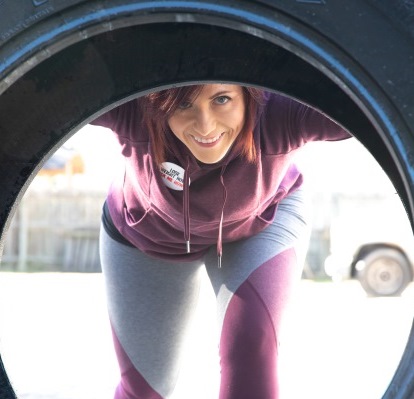Right now, the hottest trend in fitness and wellness is intermittent fasting. Many fitness advocates — as well as people wanting to lose weight and get healthy — are trying it out.
If you have been wondering if this is right for you, there is a lot to consider. I am going to share with you my thoughts on it so that you can make the best decision for yourself, and for your health.
First, let’s actually define what intermittent fasting actually means.
Intermittent fasting, also known as intermittent energy restriction, is an umbrella term for various meal timing schedules that cycle between voluntary fasting and non-fasting over a given period. Methods of intermittent fasting include alternate-day fasting, periodic fasting, and daily time-restricted feeding.

Join our Community of Peaceful Living Wellness Warriors
and receive a special free gift:
Our Top 5 Tips for Peaceful Living
Basically, a person adhering to intermittent fasting consumes solid foods within a small range of time (like 12 pm to 5 pm, for example). For the rest of the day, they do not consume any foods other than clear liquid.
While many have lost weight using this strategy, and it is relatively easy to follow, “the science concerning intermittent fasting is contested.” The American Heart Association stated in 2017 that intermittent fasting may produce weight loss, reduce insulin resistance, and lower the risk of cardiometabolic diseases, although its long-term sustainability is unknown.[2]
The short-term weight loss one can achieve with intermittent fasting can be jaw-dropping. I’ve even had clients who have had some amazing results in just a few short weeks. But my biggest concern is whether it is sustainable. Can you maintain this sort of lifestyle for extended periods of time?
Related Post: FITNESS 101: THE PROPER WAY TO DO SQUATS
Let’s take a look at some facts about weight loss and the body when it comes to intermittent fasting.
Food fuels your metabolism, so restricting nutrition to your body could slow you way down, and reduce you energy levels. In turn, this will affect your performance in the gym. For me, this is a big red flag. I don’t like feeling sluggish or like I can’t lift adequately.
Like all fad diets, intermittent fasting creates a caloric deficit, meaning you are burning more calories than you actually consume. So of course you are going to see weight loss.
The same can be said if you eat healthy, clean meals throughout the day, drink plenty of water, and get 20 to 30 minutes of exercise per day.
Also, there is the notion that your body already does its own natural intermittent fasting — and it is called SLEEP!! If you are getting 8 to 10 hours of sleep (time you are not consuming food), and cease eating around 6pm or 7pm, you would naturally get almost 10 to 12 hours of fasting at night.
In addition, restricting your food intake so severely can take a huge toll on you mentally. This can sometimes create what I like to call the vicious guilt cycle — fueled by an all-or-nothing mentality. When we slip up once, we might say “screw it,” and fall off the wagon, dissolving any progress made. Eating in moderation and living a balanced lifestyle not only allows for more flexibility, but it also contributes to good mental health.
Honestly, the biggest thing that is proven to create sustainable weight loss and good healthy habits is to focus on the mental shift versus the physical shifts. By creating positive habits, we can change how we view food, and how it fits into our lives.
With all this being said, if you still want to see if works for you, I say go for it! But make sure you do your research and hire a registered dietician or nutritionist who can help you pick an intermittent fasting plan that is suited for your lifestyle and your health. And always, ALWAYS SPEAK TO YOUR DOCTOR FIRST, ESPECIALLY IF YOU HAVE ANY MEDICAL ISSUES.

Lyndsey Bobola understands the struggles of losing weight and getting healthy. She has lost over 65 pounds through her fitness journey. Breaking through the fad diets and exercise routines and giving up excuses, Lyndsey created goals and developed nutrition plans that worked! She gained a healthy lifestyle and now feels better than ever before. As her life improved, Lyndsey developed a passion to help others discover the path to a healthier life.
Now, Lyndsey is here to help clients cut through the noise of Instagram fitness models and fad diets to find real, lasting change. She is here to help people who are ready to improve their life through fitness, health, and life goals.
Scrolling through Instagram accounts of so-called fitness models, Pinterest meal prep ideas, and online workout programs with no scientific backing, Lyndsey realized a majority of fitness ideas online are wrong. They are designed for quick but not lasting results, to make you feel inadequate, or to get your money and leave you hanging. Lyndsey wants to change that through education and hands-on training. Taking no excuses, she provides honest and effective guidance for people who are ready for change.
You can also find Lyndsey on:



